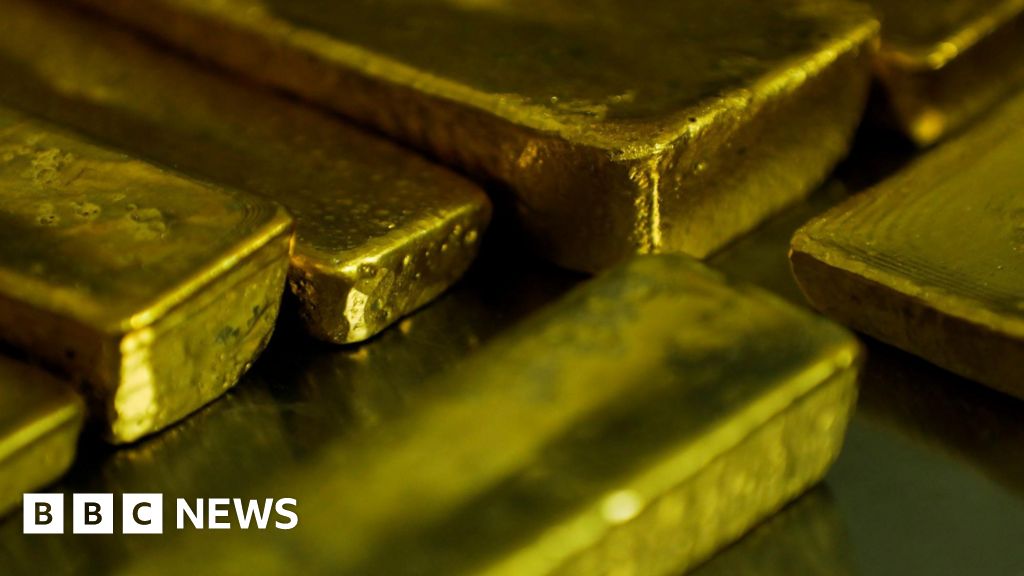Physical Address
304 North Cardinal St.
Dorchester Center, MA 02124
Physical Address
304 North Cardinal St.
Dorchester Center, MA 02124

Three Chinese nationals have been arrested with 12 gold bars and $800,000 (£650,000) in cash in eastern Democratic Republic of Congo, authorities say.
The gold and money were hidden under the seats of the vehicle in which they were traveling, according to Jean Jacques Purusi, governor of South Kivu province.
He said the operation to arrest the men had been kept secret after the recent release of another group of Chinese nationals accused of running an illegal gold mine in the area.
Eastern Democratic Republic of the Congo has abundant reserves of gold, diamonds and minerals used to make batteries for mobile phones and electric vehicles.
This mineral wealth has been looted by foreign groups since colonial times and is one of the main reasons why the region has been plagued by instability over the past 30 years.
Militia groups control many of the mines in eastern DRC and their leaders enrich themselves by selling them to middlemen.
Purusi said some of these precious metals traders enjoyed good relations with influential people in the capital, Kinshasa, and that was why the mission to carry out these latest arrests had to be kept secret.
He said they had acted on a tip-off and the gold and money were only found after a meticulous search of the vehicle in the Walungu area, not far from the Rwandan border.
He did not say exactly how much gold had been seized.
Last month, the governor told reporters that he was surprised to learn that 17 Chinese nationals, who had been arrested on accusations that they had been running an illegal gold mine, had been freed and allowed to return to China.
He said this undermined efforts to clean up the DRC’s notoriously shady mining sector.
They owed $10 million in taxes and fines to the government, according to Reuters news agency.
The Chinese embassy has not commented on the allegations.
The arrests come as fighting continues in the neighboring province of North Kivu, where a Rwanda-backed rebel group has captured large areas of territory.
last month, The Democratic Republic of the Congo said it was suing Apple for the use of “blood minerals”, prompting the tech giant to say it had stopped receiving supplies from both the Democratic Republic of the Congo and neighboring Rwanda.
Rwanda has denied being a conduit for the export of illegal minerals from the Democratic Republic of the Congo.
In their lawsuit, lawyers for the Congolese government alleged that minerals extracted from conflict zones were then “laundered through international supply chains.”
“These activities have fueled a cycle of violence and conflict by funding militias and terrorist groups and have contributed to forced child labor and environmental devastation,” they said.